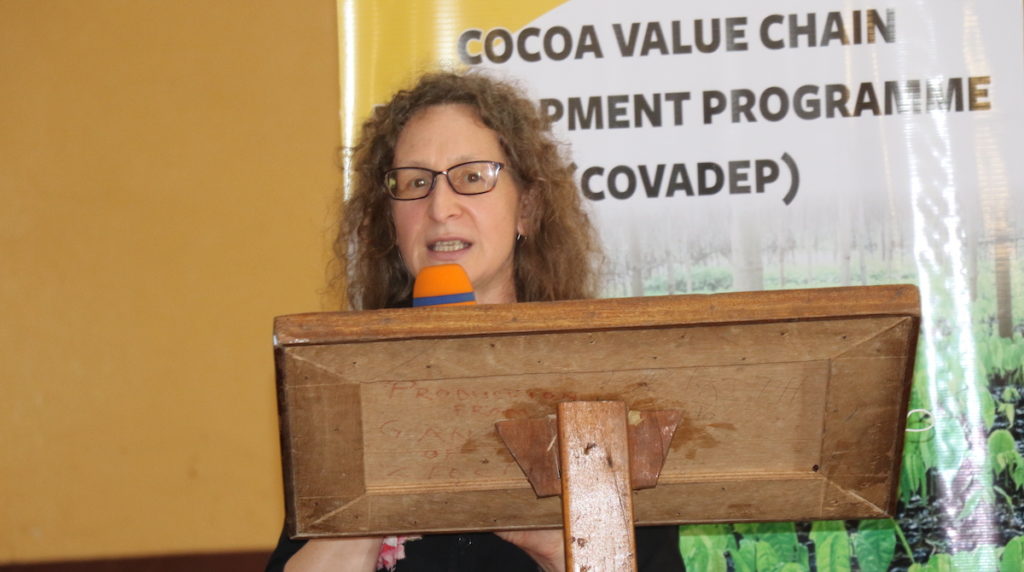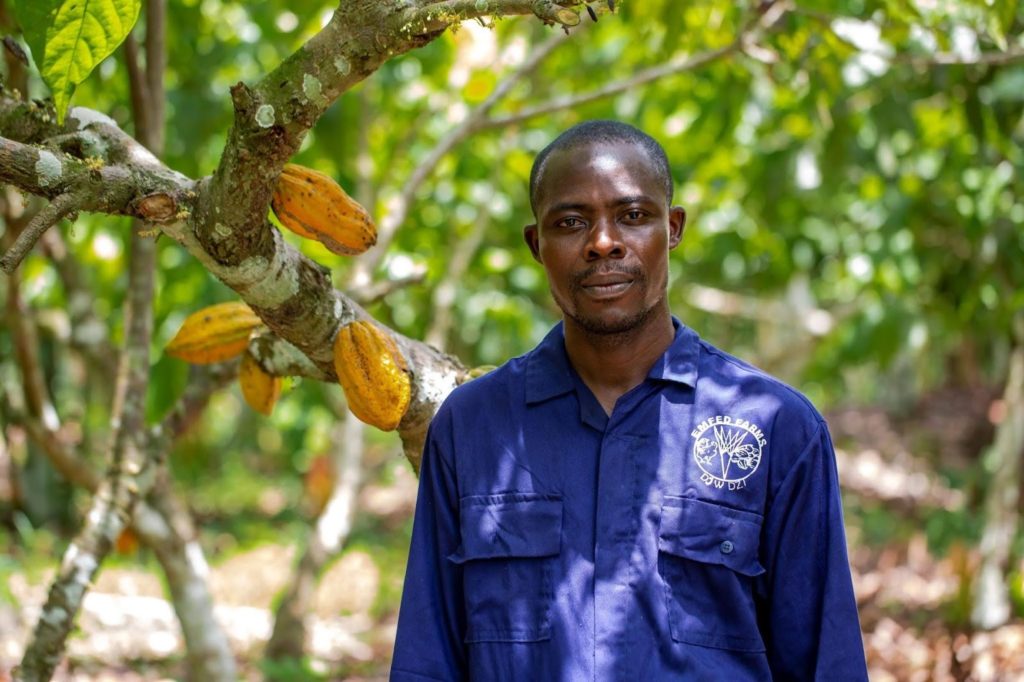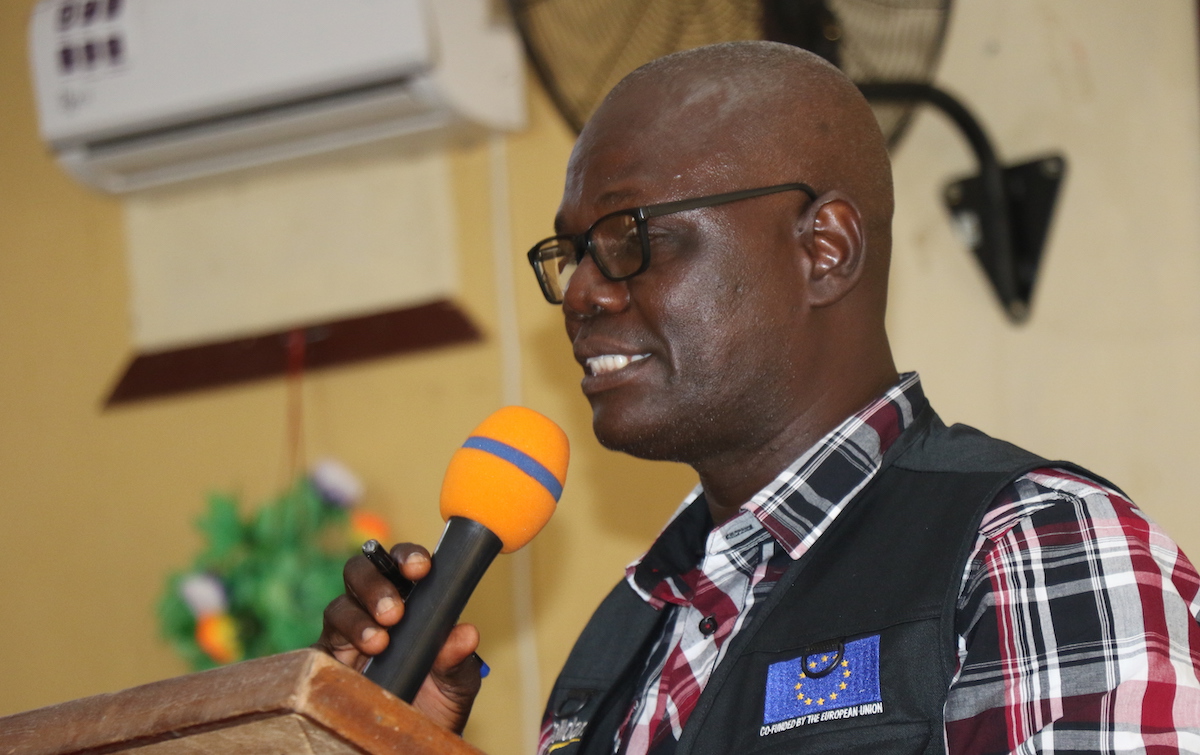The COVADEP programme, which was launched on April 28, 2021 in Zwedru City in the Grand Gedeh county, Southeastern Liberia, will complement the gains made by Solidaridad’s Liberia Cocoa Sector Improvement Programme (LICSIP), also funded by the European Union and ends in December 2021.
Kai G. Farley, superintendent of Grand Gedeh county who launched the programme, along with the superintendent of River Gee county, said he was excited that the European Union and Solidaridad have extended their intervention to the southeast part of the country to support cocoa farmers.
He said over the years, farmers have had to travel to neighbouring countries to seek knowledge about cocoa farming. He hoped that with the introduction of the programme, farmers can now learn all they need to know about cocoa without incurring extra costs of traveling and paying for knowledge and skills.
On behalf of the people of Grand Gedeh and River Gee, we are grateful for your decision to support struggling farmers who have direly needed such an intervention.
Kai G. Farley, superintendent of Grand Gedeh county
The programme, as part of its sustainability approach, has begun the setting up of 10 Centres for Cocoa Development (CCDs) in the two counties to allow more cocoa farmers and allied groups to access several support services to improve productivity and produce sustainable and certified cocoa.
Kai welcomed the initiative, which will serve as a one-stop-shop for farm inputs and management services. He promised the government’s support for the successful implementation of the programme.

For her part, Geertrui Louwagie, the cooperation officer for Agricultural Development and Food Security at the European Union, said even though the Covid-19 pandemic disrupted the programme activities at its onset, Solidaridad staff managed to engage beneficiary communities with the help of officers from the Ministry of Agriculture and the local county authorities to deal with any challenges.
“The European Union has a keen interest in investing in Liberia’s cocoa sector because we believe it has the potential to be one of several success stories for Liberia’s development. An integrated approach across the cocoa value chain would go a long way in achieving this,” Geertrui said.
Michael Doe, Solidaridad’s country representative for Liberia, said cocoa accounts for 12 percent of the employment force in Liberia, yet the lack of access to improved planting materials and skills continues to drive farmers away from cocoa production.
“Solidaridad will continue to develop systems for the supply of improved planting materials and train community facilitators to build the capacity of other farmers in their communities to address these impediments,” he said.
Michael applauded the European Union Delegation for continuing to work with Solidaridad to deliver the much needed support to smallholder farmers.

Integrating good practices
Solidaridad is helping smallholder farmers adopt good agricultural practices through practical training.
Generating revenue through inclusion
Solidaridad, through the programme, will support more women and youth as entrepreneurs through incubation centres and promote cocoa value addition and certification through market engagement with international cocoa off-takers to enhance revenue generation for the Liberian economy.
Under the programme, Solidaridad will also strengthen the capacity of appropriate institutions to enforce inclusive sector policies, incubate new cocoa-related small businesses and investment incentives to promote downstream development.

